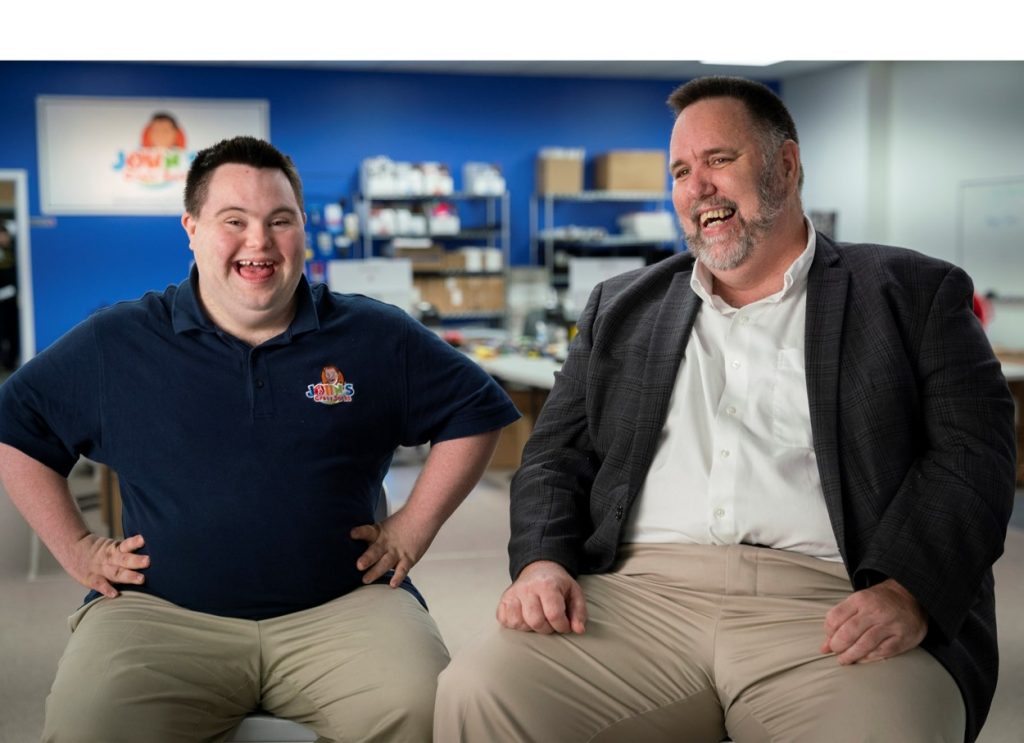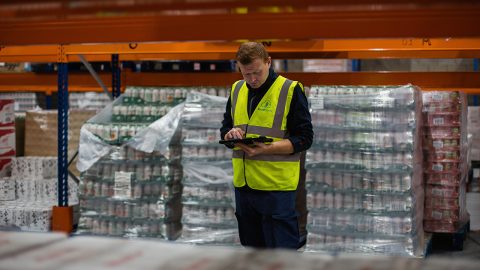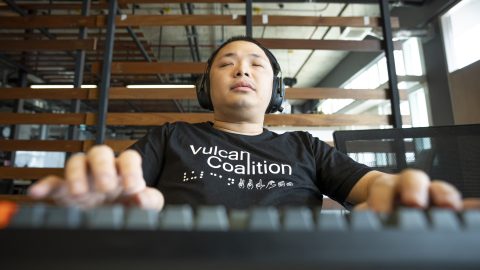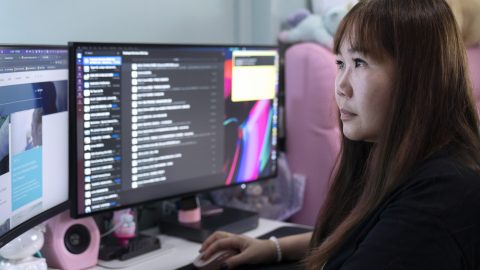John’s Crazy Socks spreads joy, shows power of hiring people with disabilities
John Cronin knew he wanted to start a business with his dad after high school but needed a killer idea. He first proposed a “fun store.”
“We’re still not sure what a fun store would be,” says his father, Mark X. Cronin.
His next idea: a food truck. Both men had loved the movie “Chef,” about a father and son in the mobile food business, but there was a problem. “We can’t cook,” says John Cronin.
Then Cronin, who is 22 and has Down syndrome, reflected on his sartorial flair for colorful outfits and socks, a passion that began in fourth grade to the occasional shriek of his older brother: “Dad, you can’t let him go out like that!”
But Cronin’s fashion resolve led to his lightbulb idea for John’s Crazy Socks, a flourishing online store launched in late 2016. Based in Huntington, New York, the company has grown into a multi-million-dollar business with an inventory of more than 2,000 unique, cheerful and vibrant socks. They include socks with googly-eyed pineapples, smiling corgis, Van Gogh’s “Starry Night” and trolls with hair you can comb.
“They’re fun, colorful, creative and let me be me,” Cronin says of his affinity for joyous footwear.
John’s Crazy Socks is both a small-business success and a showcase for disability inclusion, with more than half of its 35-person staff composed of employees with a disability. The company prioritizes customer service with same-day shipping and a handwritten thank-you note that includes candy in each order from Cronin, who serves as the company’s face, personality and “chief happiness officer.”
In its first full year of business, the company shipped nearly 43,000 orders to 44 countries and expects to double its revenue by the end of its second year. In addition to carrying socks from other designers, the company designs its own awareness and charity socks, including a popular Down syndrome superhero sock created by Cronin. It also recently launched a custom sock program that works with schools, nonprofits and businesses.
“Our mission is showing what people with different abilities can do, as opposed to what they can’t do,” says Mark Cronin, whose background includes managing health-care IT systems. “We have a social mission and an e-commerce mission, and they’re indivisible. They’re at the heart of what we do.”
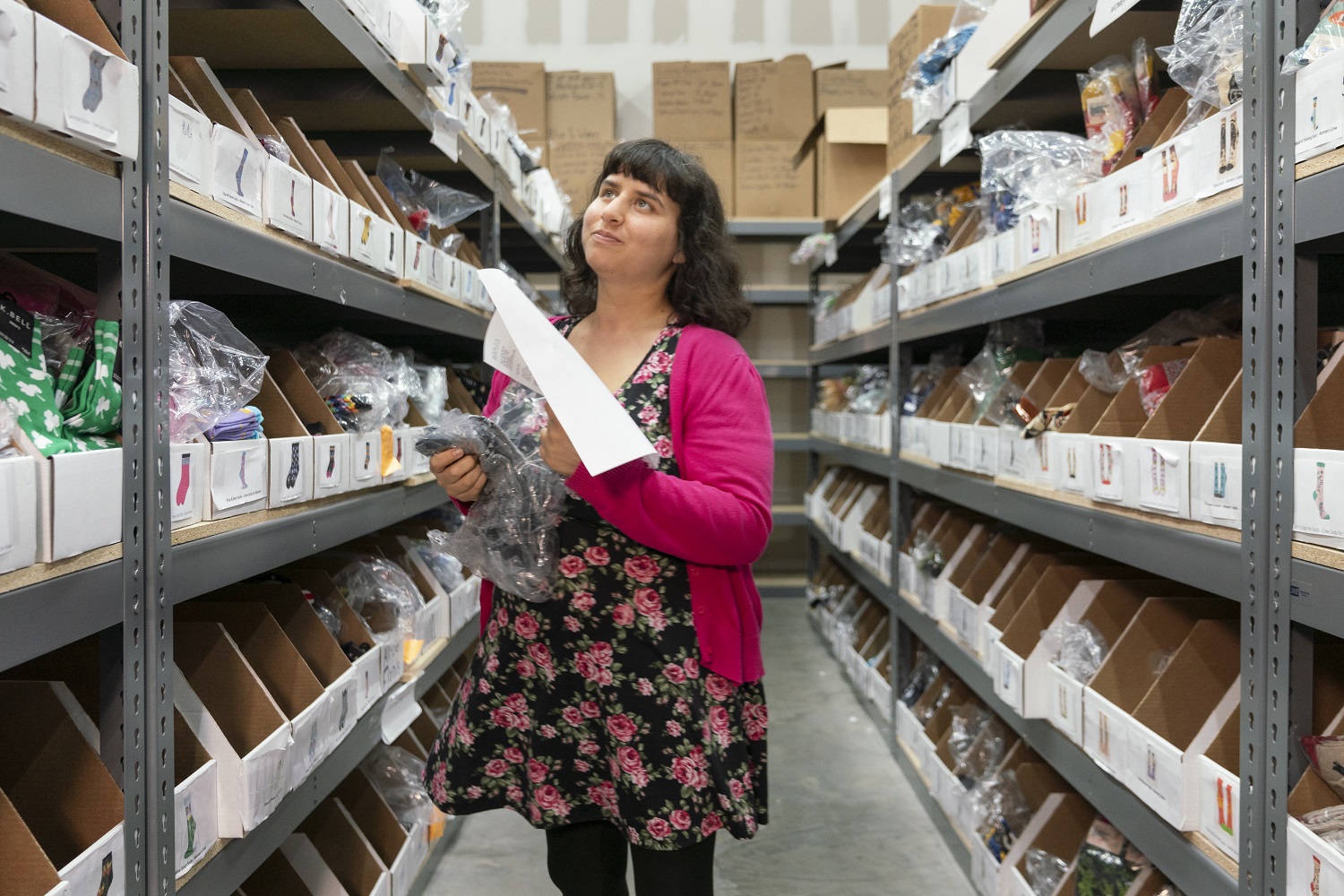
The company is part of a growing trend in inclusive hiring, with more businesses hiring people with disabilities and working to close a large employment gap. Only 30 percent of working-age people with a disability have a job, compared with 74 percent of people without a disability who have a job, according to recent data from the Bureau of Labor Statistics.
“The conversation around disability is changing from ‘People with disabilities can’t work’ to ‘How can we create an environment where everyone can contribute?’” says Meg O’Connell, vice president of Workplace Initiative, a New York City-based program that works with businesses around the country on inclusive hiring.
“People with disabilities have a lot to contribute, and like with any diversity group, if we’re missing contributions from a single talent pool, it’s a miss for all of us. We’re in the middle of that cultural shift.”
Most of John’s Crazy Socks’ employees with a disability work as warehouse “sock wranglers” or “happiness packers” and view the job with pride and joy. The company hosts school tours, organizes after-work social events, does speaking engagements and creates viral videos – all to highlight disability inclusion and help employees learn valuable job and life skills. It also donates 5 percent of revenue to the Special Olympics and raises money through its awareness and charity socks for partners like the National Down Syndrome Society.
“None of this is rocket science. We’re a couple of knuckleheads from Long Island running a sock business,” Mark Cronin says jokingly. “But we’re treating people well and they’re better employees because of it. It’s really exciting to witness what they do every day.”
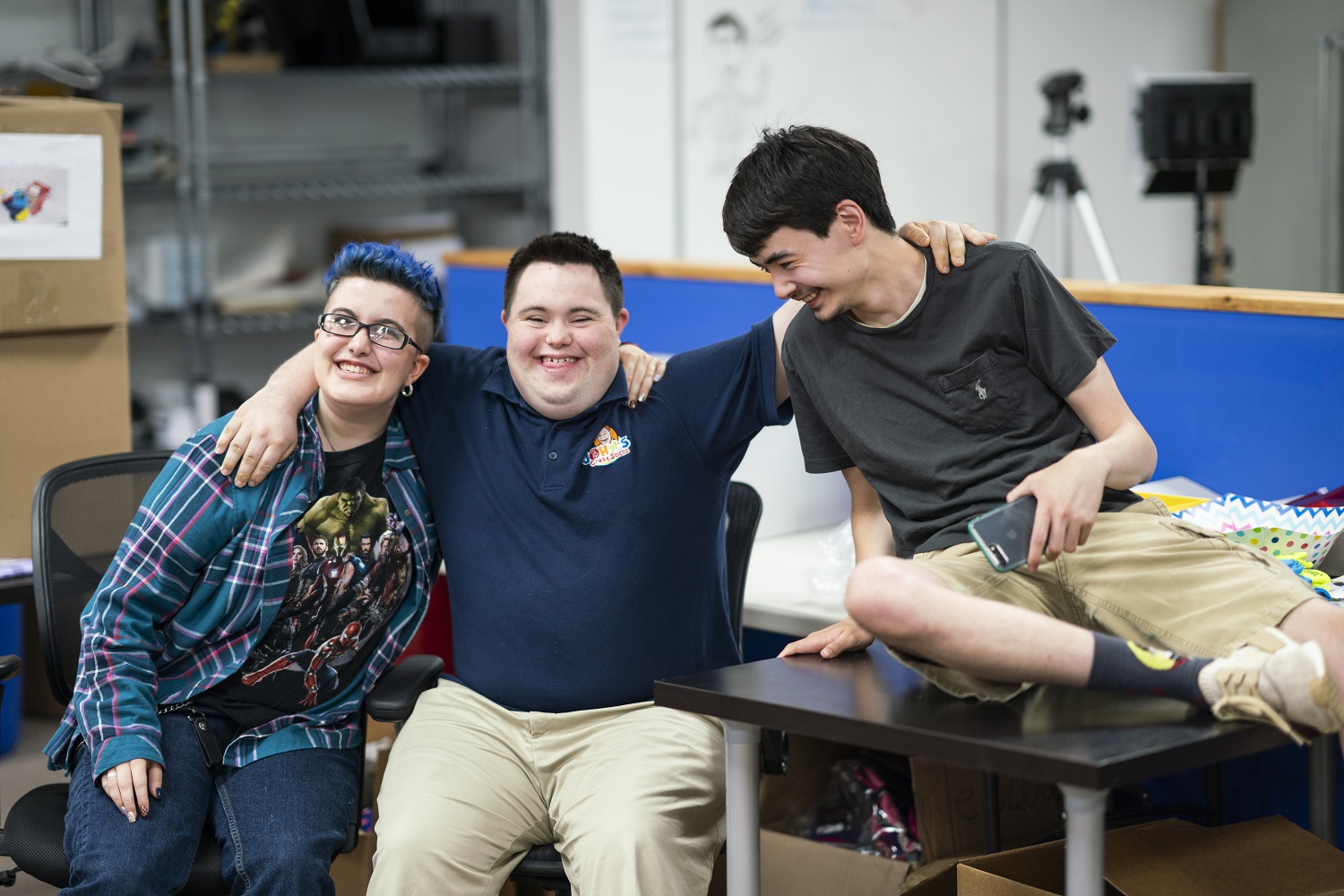
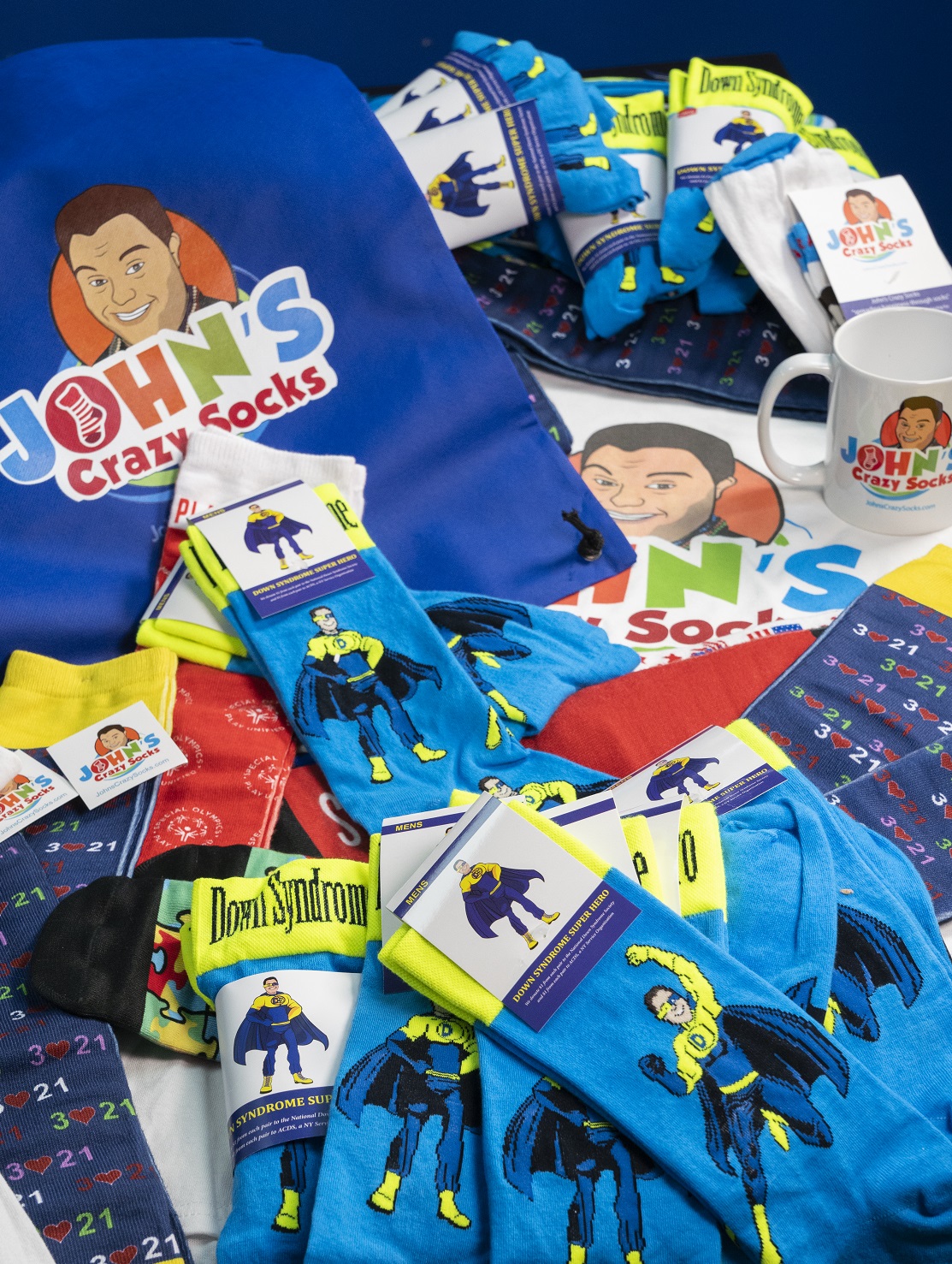
The company recently gave employees business cards and an email address through Microsoft Office 365, the first time many of them had ever had an email account. Along with Surface Pro devices, the cloud-based technology has helped John’s Crazy Socks manage its growing business and communicate directly with staff – and not just with their parents and guardians.
“We wanted people to feel like professionals,” says Mark Cronin. “What other people may take for granted, our folks were ecstatic. They were incredibly excited to get an email address.”
For Andrew Oh, a quiet, 23-year-old sock wrangler with autism, the job has helped him talk more and be more confident in social situations, says his mother, Dianne Taglich-Oh. He loves handing out his business card and getting emails from his boss about company news and his schedule, instead of hearing about them through his mom. Email makes him feel like a valued, responsible employee.
“Before, he was like a wallflower,” says Taglich-Oh. “But after working there, he’s come out of his shell. His vocabulary – oh my God, I can’t believe how it’s grown.” She began tearing up at the progress of her son, who now often excitedly describes his work day and colleagues to her.
“He couldn’t always do what the typical kids were doing – couldn’t read as fast, write as fast,” she says. “But now, he has a sense of ‘I’m worth something.’”
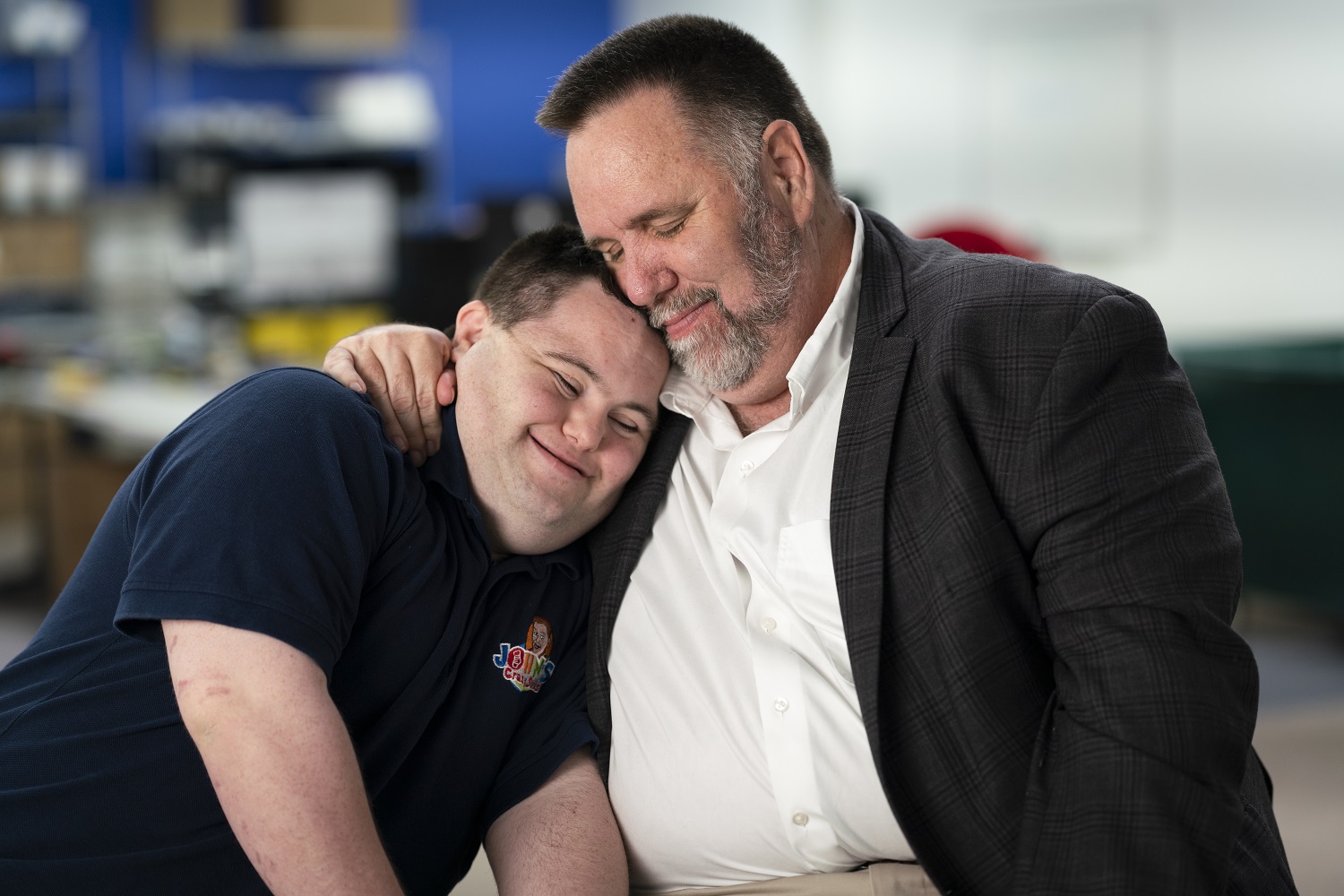
For Mark Cronin, watching the accomplishments of his youngest son has been a powerful journey. Like many people with Down syndrome, John was born with severe medical issues, including the need for open heart surgery when he was 3 months old. Two decades later, father and son testified this year before a congressional committee on the power of small businesses to enrich people with disabilities.
“When John was born, there were so many people telling us all the things he wouldn’t be able to do,” says Cronin. “We just let John define that.”
Read a case study about John’s Crazy Socks to learn more about the company.
Top photo: John Cronin, left, and Mark X. Cronin.

